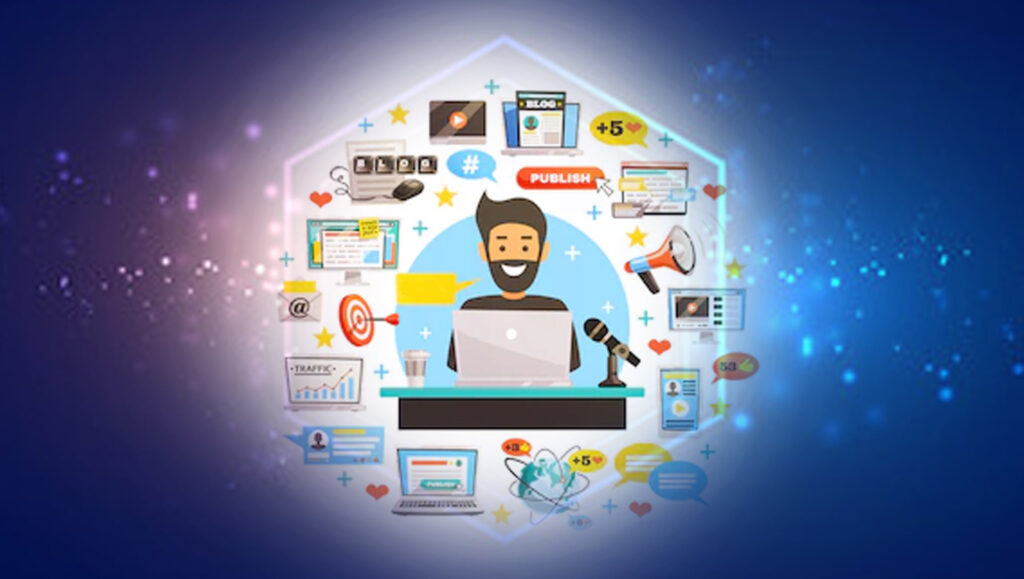AI-driven personalization is gaining much-deserved hype as today’s martech and salestech platforms endeavor to deliver individualized content that adds value to the user and enhances their experience. The technology musters the cues about the customer’s preferences and intent by noting the interests of the consumers, earlier purchases, location, shopping history, keywords searched, and the actual behavior of a similar class of customers.
Content personalization is a growing trend and is becoming a serious requirement with time. According to Retail TouchPoints, 36% of the customers demand more personalized experiences from the platforms they engage with.
Read More: SalesTechStar Interview with Art Harding, Chief Operating Officer at People.ai
Top Brands That Curate AI Personalized Content
Personalization is all about relevance and serving highly personal results to consumers without 1:1 interactions. In such a scenario, many behemoth enterprises have proved it as an achievable feat through Artificial Intelligence that records the preferences and behavior of the consumers across different devices and platforms. Here are top brands that can inspire you to capitalize on the power of content personalization:
1. Amazon:
The giant shopping platform has taken the world by storm over the last few years. Thanks to its reliance on AI content personalization that involves sophisticated algorithms collecting consumer sentiments, preferences, behavior, and other required details. The shopping suggestions are curated based on earlier customer purchases, purchases by other similar consumers, keyword searches, browsing, and countless other factors. Further, Amazon also vaunts the feature of dynamic pricing of the commodities via AI, where the prices automatically drop when demand is low and rise in case of high demands. The platform is coming up with checkout-free real stores, which have already been established in Chicago, San Francisco, and Seattle. Their stores exploit AI-powered cameras and sensors to know the item being shopped and thus charge accordingly as they check out the store via the Amazon Go application.
2. Nike:
Nike has ever blarneyed the consumers in its smart sports gears and gadgets innovation. It also launched a setup that could facilitate the consumer to forge and customize their sneakers/ shoes in store. This gimmick not only garnered the enterprise a terrific number of sales rather provided them with data to help personalize and improve their products in alignment with future demands and preferences of the customers. The AI of Nike, through its complex algorithm, amasses information that is supportive in personalizing the recommendations and marketing emails.
3. Alibaba:
Alibaba, another giant from China, is a pioneer in fashion AI. It has established an AI store that uses smart raiment tags, which can understand when a particular item is touched while intelligent mirrors showcase the details about clothing. The data from the fashion AI store of Alibaba is also integrated into the wardrobe application, which is another innovation the firm is looking forward to. As the consumer steps into the wardrobe application, he will notice the suggestions based on the in-store behavior and likings thus, curating personalized experiences.
4. Philips:
Phillips is known and revered across the globe for delivering smart home appliances and domestic products. The enterprise extends its services in 38 languages and 79 markets over diverse platforms and mobile devices that constitute more than 50% of its traffic. Philips further resorted to AI for building more personalized experiences for its customers worldwide. The machine learning abilities integrated into their regime assisted them with data on customer interactions, preferences, and behavior. It provides the analysts with information that helps them learn how the customer learns, interacts, and acts which would then aid in improving the overall sales and business of Philips.
5. Swisscom:
Swisscom is a spearheading telecom company based in Switzerland that decided to improve its content delivery and seek to personalize it. The enterprise began employee Artificial Intelligence and Adobe Target to deliver the most relevant results and boost user experience. The AI of Swisscom peruses and analyzes the profiles of its consumers, which enables it to toss forth the most pertinent results and thereby to drive more sales to the company. Nicolas Meriel, a senior digital strategist at Swisscom, credits machine learning for surging the clickthrough rate by a whopping 40%. And thus, Swisscom was able to rise above the competition and differentiate itself in its more personalized services.
6. Starbucks:
The brand has not held itself behind in employing technology for its promotion ever, nor has it done this time. Starbucks has leaped to seize the potential of Artificial Intelligence to connect better and understand its customers. Personalization has always been the priority of Starbucks, as proven in its bespoke beverages for consumers. The business sleuths the data from over 90 million translations per week to decipher new data to aid in the personalization of the platform and take important decisions.
AI-driven content personalization is the future of businesses. It is an urgent need for businesses to embrace it at the earliest to stay ahead of the curve and relevant for their consumers.
Read More: How Consumer Shopping Behaviors Are Changing Amid Rising Inflation Rates





















